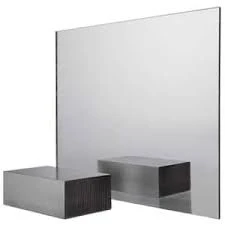

What is Float Glass Used For?
Float glass is a type of glass that is widely recognized for its unique manufacturing process and its myriad applications across various industries. This glass is produced by floating molten glass on top of molten tin, resulting in a smooth and flat surface. The manufacturing process, known as the float process, was developed in the 1950s and has since become the primary method for producing high-quality flat glass. Its clarity, uniform thickness, and distortion-free surface have made it a preferred choice for numerous applications.
One of the primary uses of float glass is in the construction industry. It is extensively used in windows, doors, and facades due to its transparency, ability to transmit light, and aesthetic appeal. Float glass allows natural light into buildings, improving the comfort and mood of occupants. Moreover, its smooth surface can be easily cleaned, making it an ideal choice for urban environments where dirt and grime accumulate quickly. In addition to standard windows, float glass can also be processed further to create double-glazing or triple-glazing units, which enhance thermal insulation and soundproofing in buildings.
What is Float Glass Used For?
Another significant application of float glass is in the automotive industry. Car manufacturers utilize float glass for windshields, windows, and sunroofs. The safety features of float glass are particularly crucial in this context, as it can be treated to meet safety standards and resist shattering upon impact. This makes it an essential component in designing vehicles that protect occupants while providing clear visibility.

In the realm of solar energy, float glass plays a vital role in the production of solar panels. It serves as a protective layer for the photovoltaic cells, ensuring durability and efficiency. The smooth surface of float glass allows for optimal light transmission, which is crucial for maximizing the energy output of solar panels. As the demand for renewable energy sources continues to grow, the use of float glass in this sector is expected to expand.
Furthermore, float glass is utilized in various manufacturing processes in industries such as electronics and appliances. For instance, it is used to create screens for televisions, computers, and smartphones. The clarity and uniformity of float glass help in providing a better visual experience for consumers, cementing its relevance in the rapidly evolving electronics market.
Environmental considerations have also influenced the use of float glass. As an inert material, it is 100% recyclable without losing its original properties. Many manufacturers are increasingly using recycled glass in the production of new float glass, contributing to sustainable practices and reducing waste. This eco-friendly aspect aligns with the global trend toward sustainability and responsible consumption.
In addition to its functional applications, float glass offers artistic possibilities. It is often used in decorative items, glass art, and customized designs for both commercial and personal use. Artists appreciate float glass for its clarity and versatility, allowing them to create intricate patterns and unique installations. The use of float glass in architecture also spans toward artistic facades that utilize reflections and transparency to create visually striking buildings.
In summary, float glass is an indispensable material that finds its applications in a variety of sectors, including construction, automotive, electronics, solar energy, and even art. Its unique manufacturing process results in a high-quality, versatile product that meets the demands of modern life. As advancements in technology continue to evolve, the uses of float glass are likely to expand further, making it a key player in both functionality and aesthetics across various industries. Its recyclability also provides an environmentally friendly option for consumers and businesses alike, reinforcing its importance in today's sustainable world.